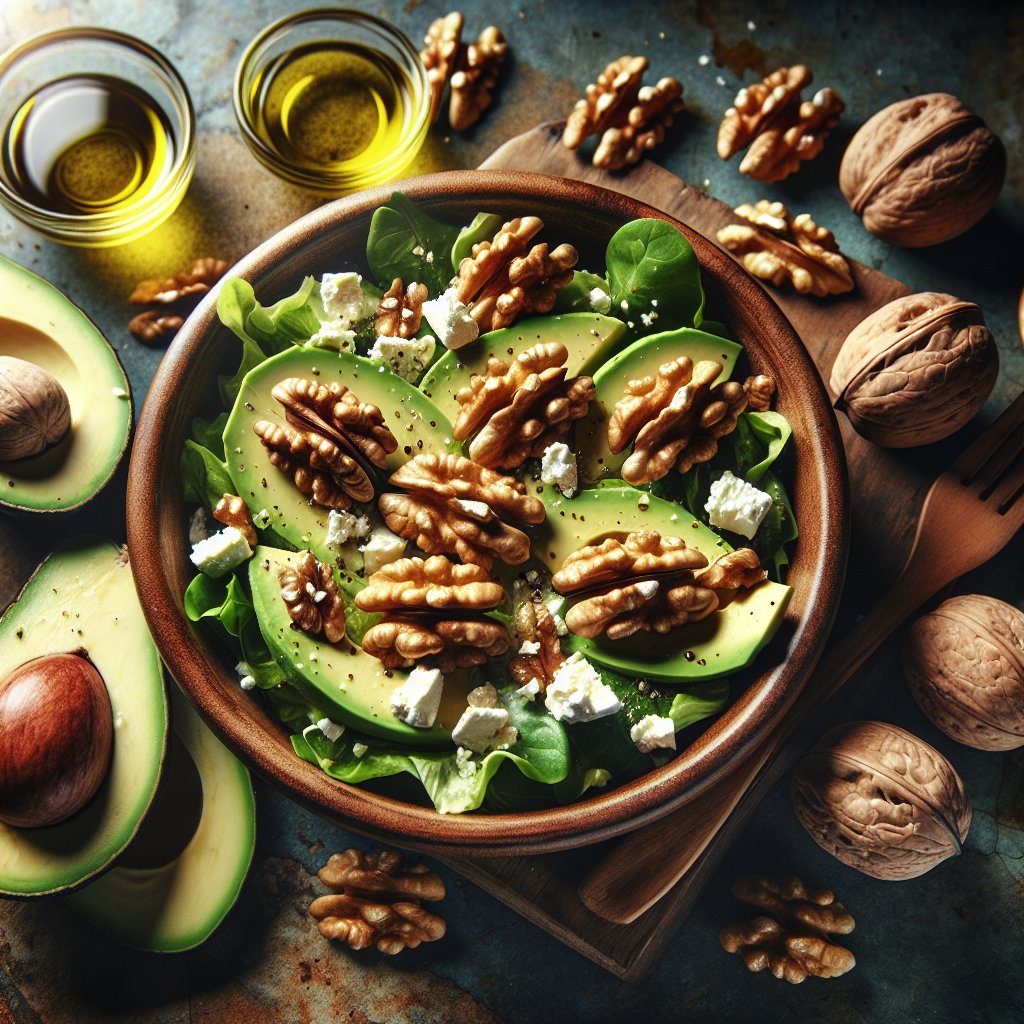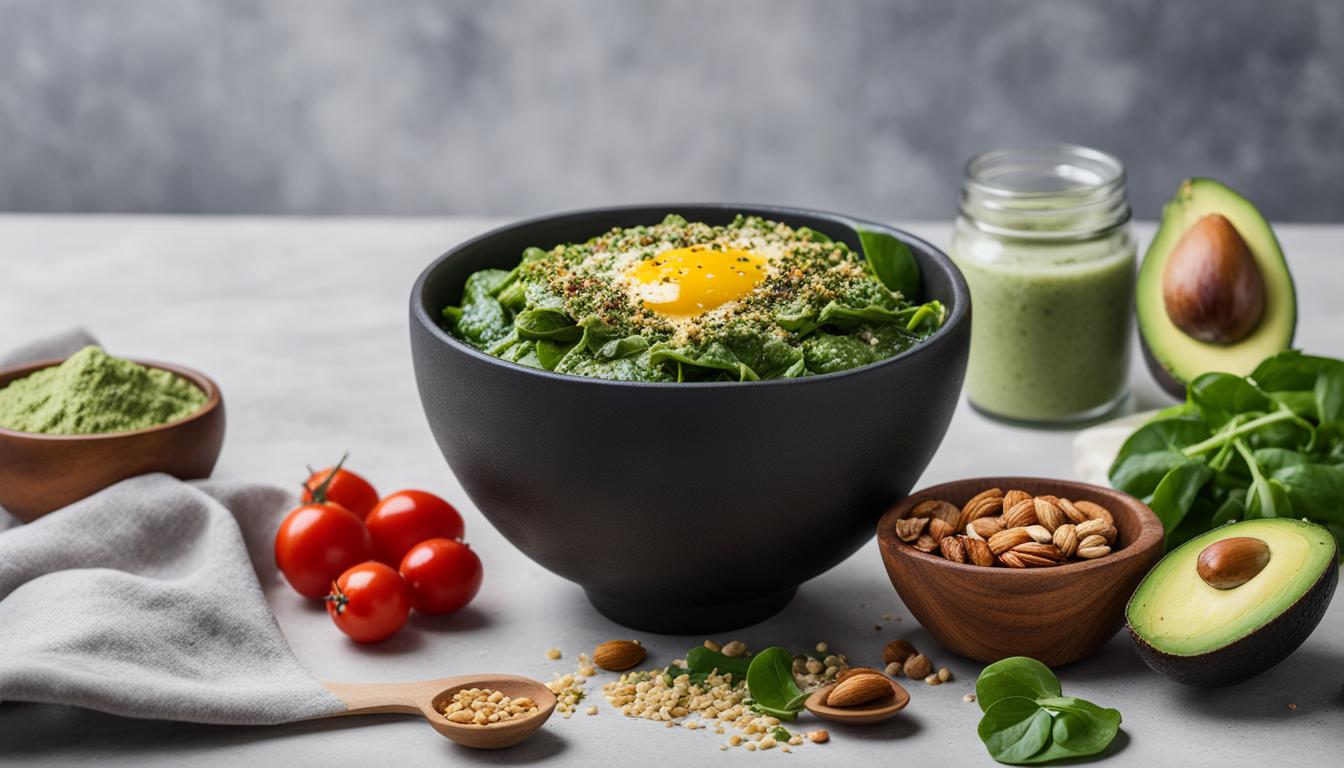Unlock the Power of Walnut Carbs on Keto: How This Nut Superfood Can Transform Your Diet
Briefly Introducing Walnut Carbs on Keto
Are you ready to unlock the power of walnut carbs on the ketogenic diet? If you’re a keto enthusiast, you probably understand the significance of choosing the right foods to maintain ketosis and achieve your health goals. That’s where walnuts come into play. Known for their versatility and nutritional benefits, walnuts can be a game-changer in your keto journey. Let’s dive into the world of walnut carbs and discover how this superfood can transform your diet while keeping you on track with your ketogenic lifestyle.

Nutritional Value of Walnuts
When it comes to the macronutrient composition of walnuts, these little nut superstars are a powerhouse of essential nutrients, making them an ideal addition to a ketogenic diet. Let’s delve into the macronutrient breakdown of walnuts, including carbohydrates, fats, and proteins, and understand how they can positively impact your keto journey.
Carbohydrates
Walnuts are incredibly low in carbohydrates, making them an excellent choice for those following a ketogenic lifestyle. In fact, a 1-ounce (28-gram) serving of walnuts contains only 2 grams of carbohydrates, with 1 gram coming from fiber. This minimal net carbohydrate content makes walnuts a keto-friendly option, allowing you to enjoy their delicious nutty flavor without worrying about disrupting your ketosis.
Fats
One of the standout features of walnuts is their high-fat content, consisting mainly of healthy polyunsaturated and monounsaturated fats. A 1-ounce serving of walnuts provides approximately 18 grams of fat, out of which 2.5 grams are saturated fat, 13 grams are monounsaturated fat, and 2.5 grams are polyunsaturated fat. These beneficial fats not only support ketosis but also contribute to heart health and overall well-being.
Proteins
While walnuts are not as rich in protein as they are in fats, they still contain a moderate amount of this essential macronutrient. A 1-ounce serving of walnuts offers about 4.3 grams of protein, complementing the protein intake from other sources in your keto diet.
With their low carbohydrate content, high healthy fat profile, and moderate protein content, walnuts perfectly align with the macronutrient requirements of a ketogenic diet, making them a valuable addition to your daily nutrition.
Carbohydrate Content in Walnuts
When it comes to following a ketogenic diet, one of the primary concerns is the carbohydrate content in different foods. So, let’s talk about walnuts. These delicious nuts are not only rich in healthy fats and protein but also relatively low in carbs. In fact, a 1-ounce (28-gram) serving of walnuts contains only about 2 grams of net carbs, making them an excellent choice for those following a keto lifestyle.
Walnuts are a great source of plant-based omega-3 fatty acids, antioxidants, and fiber, making them a valuable addition to a well-rounded ketogenic diet.
Many people might be surprised to learn that walnuts are lower in carbs compared to other nuts like cashews or pistachios. This makes them a versatile and satisfying option for those looking to manage their carbohydrate intake while enjoying the health benefits of nuts.
Considering their low carb content and high nutritional value, walnuts can be a fantastic addition to your ketogenic meal plan. From incorporating them into your morning smoothie or sprinkling them over a salad, to enjoying them as a quick and convenient snack, there are endless ways to include walnuts in your keto diet without worrying about consuming too many carbs.
So, fear not, fellow keto devotees – walnuts can be a scrumptious and convenient way to power up your keto lifestyle without derailing your carb goals.

Potential Benefits of Including Walnuts in a Ketogenic Diet
When it comes to following a ketogenic diet, incorporating walnuts can be a game-changer, both in terms of flavor and nutritional benefits. These powerhouse nuts are low in carbs and high in healthy fats, making them an ideal choice for keto enthusiasts.
Rich Source of Healthy Fats
Walnuts are packed with alpha-linolenic acid (ALA), an essential omega-3 fatty acid. Research has shown that omega-3 fatty acids can support heart health and may even help in reducing inflammation in the body. When you’re on a keto diet, consuming foods high in healthy fats like walnuts can keep you feeling satisfied and full of energy.
Low in Net Carbs
One ounce of walnuts contains only around 2 grams of net carbs, making them an excellent choice for those following a low-carb or ketogenic lifestyle. The majority of the carbs in walnuts come from fiber, which is not fully absorbed by the body, thereby having minimal impact on blood sugar levels – a win for keto dieters aiming to stay in the fat-burning state of ketosis.
Supports Brain Health
The unique combination of omega-3 fatty acids, antioxidants, and vitamin E in walnuts may offer benefits for brain health. Some studies indicate that regular consumption of walnuts could potentially support cognitive function and reduce the risk of age-related decline in brain health.
Incorporating walnuts into your keto diet can be as simple as sprinkling them over a salad, blending them into a creamy walnut pesto, or even enjoying them as a crunchy snack. The versatility of walnuts makes them an easy and delicious addition to any ketogenic meal plan.
By including walnuts in your ketogenic diet, you are not only adding a delightful nutty flavor to your dishes but also reaping the benefits of their healthy fats and powerful nutrients.
Keto-Friendly Walnut Recipes
Walnuts are not only a delicious and crunchy snack, but they also make a fantastic addition to keto-friendly recipes. Packed with healthy fats, protein, and fiber, walnuts offer a satisfying and nutrient-dense ingredient for your low-carb lifestyle. Here are a few mouthwatering keto-friendly recipes that incorporate the power of walnuts:
1. Walnut Crusted Salmon
For a flavorful and nutritious dinner option, try making walnut-crusted salmon. Start by coating a fresh salmon fillet with a mixture of crushed walnuts, grated parmesan cheese, and a dash of paprika. Bake in the oven until the salmon is cooked to perfection and the walnut crust is golden and crispy. This dish provides a rich source of omega-3 fatty acids from the salmon, combined with the satisfying crunch of walnuts.
2. Mixed Green Salad with Walnuts and Avocado
Create a refreshing and satisfying salad by tossing together mixed greens, chopped walnuts, and sliced avocado. Drizzle with a simple dressing made of olive oil, lemon juice, and a hint of Dijon mustard. This keto-friendly salad is not only packed with healthy fats and essential nutrients but also provides a delightful texture contrast with the addition of walnuts.
3. Keto Walnut Fat Bombs
Indulge in a guilt-free treat by preparing keto walnut fat bombs. These decadent yet low-carb snacks are a blend of crushed walnuts, coconut oil, and a touch of cocoa powder. After chilling in the refrigerator, they solidify into satisfying, bite-sized treats that are perfect for curbing cravings while staying in ketosis.
These keto-friendly walnut recipes offer a delightful way to incorporate the nutritional benefits of walnuts into your low-carb lifestyle while satisfying your taste buds and keeping your body in fat-burning mode.

Tips for Incorporating Walnuts in a Keto Diet
Adding walnuts to your ketogenic meal plan can be both delicious and beneficial for your health. Here are some practical tips to help you seamlessly include walnuts in your keto diet:
1. Snack on Walnuts
Keep a bag of walnuts with you for a quick and convenient on-the-go keto-friendly snack. A handful of walnuts provides a satisfying crunch and a good dose of healthy fats to keep you satiated.
2. Sprinkle on Salads
Sprinkle chopped walnuts on top of your salads to add a delightful nutty flavor and a satisfying crunch. Not only does it enhance the texture of your salad, but it also boosts the nutritional value with added healthy fats.
3. Use as a Low-Carb Topping
Walnuts can be ground or chopped finely and used as a low-carb topping for various dishes. From yogurt to keto-friendly desserts, walnuts can be a versatile and nutritious addition to your meals.
4. Blend into Keto Smoothies
Add a handful of walnuts to your keto smoothies for an extra creamy texture and a nutty flavor. The healthy fats in walnuts make them a perfect complement to your low-carb smoothie recipes.
By incorporating walnuts into your keto diet, you not only add variety to your meals but also benefit from their rich nutritional profile, making your ketogenic journey even more enjoyable and wholesome.
Potential Risks or Allergies
For the most part, consuming walnuts on a keto diet is quite safe and beneficial. However, there are a few potential risks and allergies associated with walnut consumption that you should be aware of.
Allergies
First, let’s talk about allergies. While walnuts are a great source of healthy fats and protein, some individuals may have allergies to tree nuts, including walnuts. Walnut allergies can cause minor symptoms such as itching and swelling in the mouth and throat, as well as more severe reactions like hives, vomiting, and anaphylaxis in extreme cases. If you have a known nut allergy, it’s crucial to consult with a healthcare professional before incorporating walnuts into your keto diet.
Oxalates
In terms of potential risks, walnuts are known to contain oxalates, which are naturally occurring compounds found in many foods. High levels of oxalates can contribute to the formation of kidney stones in some individuals. Therefore, if you have a history of kidney stones or are at risk of developing them, it’s advisable to moderate your walnut consumption and ensure you stay hydrated to minimize the risk.
Moderation is Key
While these potential risks and allergies exist, the majority of individuals can safely enjoy walnuts on a keto diet. As with any food, moderation is key. If you don’t have a tree nut allergy or a history of kidney stones, there’s no reason to omit walnuts from your keto meal plan. Just be mindful of your portions and listen to your body’s response to ensure that you’re reaping all the incredible benefits without any adverse effects.
Conclusion
In this article, we’ve delved into the incredible benefits of walnuts and their compatibility with a keto lifestyle. Walnuts are a superfood that not only adds a delightful crunch to your diet but also provides a plethora of health benefits.
Research has shown that the carbs in walnuts mainly consist of fiber, which has minimal impact on blood sugar levels. This makes them an excellent choice for those following a keto diet, as they can help maintain ketosis while providing essential nutrients.
Moreover, the high fat content in walnuts, predominantly healthy omega-3 fatty acids, aligns perfectly with the keto macronutrient profile, making them a valuable addition to your meals and snacks.
The micronutrient richness of walnuts, including essential vitamins and minerals, further enhances their appeal for keto enthusiasts.
Overall, walnuts are a versatile and nutritious option for anyone embracing the keto lifestyle. Whether incorporated into salads, used as a topping for yogurt or oatmeal, or simply enjoyed on their own, walnuts can be a game-changer for those seeking a sustainable and wholesome approach to keto living. So, go ahead, unlock the power of walnut carbs on keto, and elevate your dietary experience!


